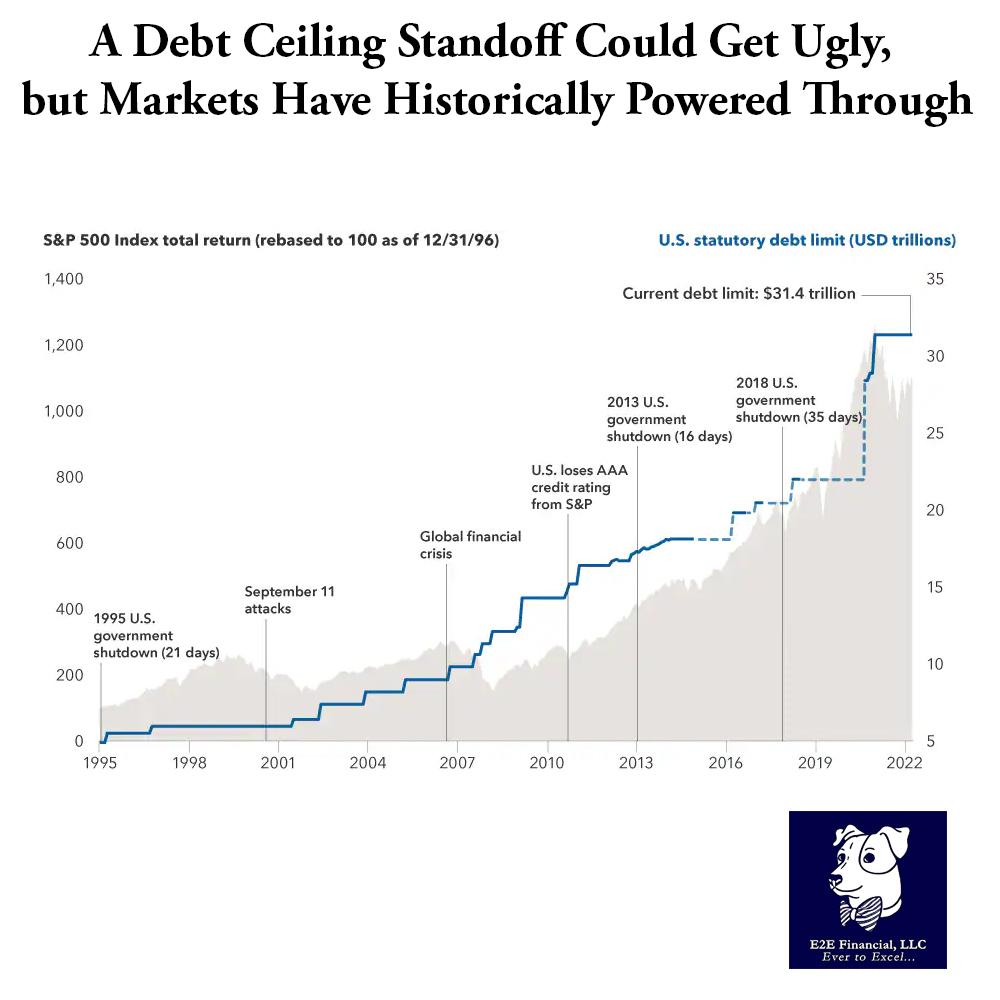
Stop me if you’ve heard this one before: U.S. lawmakers are clashing over a legislative action to raise the federal debt ceiling. The issue has been percolating for months but could come to a head this summer as the U.S. Treasury starts running out of money to pay its bills.
The decision to increase the nation’s debt limit is often a routine one — except in years when Congress is divided, like it is now. With Republicans controlling the House of Representatives and Democrats in command of the Senate, the scene is set for what could be one of the most contentious debt ceiling showdowns in recent history.
So far, Democrats have said they won’t negotiate on the issue, while many Republicans have said they won’t vote to lift the debt limit without some additional agreements to curb federal spending.
“This could be the worst standoff we’ve ever witnessed,” says Capital Group political economist Matt Miller. “It certainly has the potential to be at least as bad as 2011.”
That’s the year Standard & Poor’s cut the United States’ prized AAA credit rating to AA-plus (where it remains) amid concerns about the government’s budget deficit, a growing long-term debt burden and political conflicts over raising the debt limit. The move unnerved U.S. financial markets for a time, but they quickly recovered.
In fact, not long after the 2011 credit rating action, U.S. stocks embarked on one of the longest bull markets in history — a virtually uninterrupted run from 2011 until the start of the COVID-19 pandemic.
“I think the lesson from 2011, and a subsequent debt ceiling impasse in 2013, is that these events can disrupt markets for a while — sometimes even weeks or months — but if we look at history, they don’t tend to have a lasting impact on investors,” Miller says. “That’s assuming we get a reasonable resolution.”
On Wednesday, House Speaker Kevin McCarthy unveiled legislation that would raise the debt limit by $1.5 trillion. The bill also includes several other provisions to curtail federal spending. It remained unclear whether there were enough votes to pass the bill in its current form.
Stay tuned. Is it time to review your investments? Schedule your free investment review with us.




